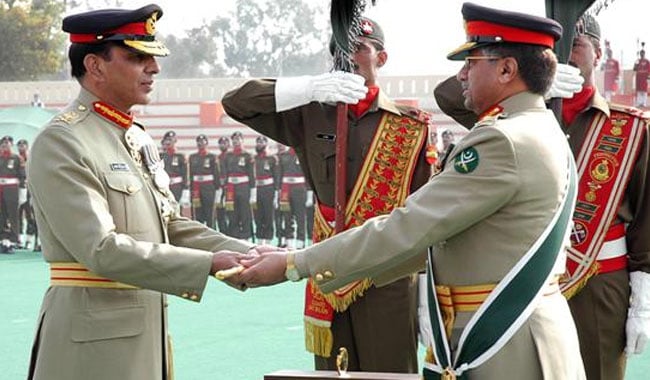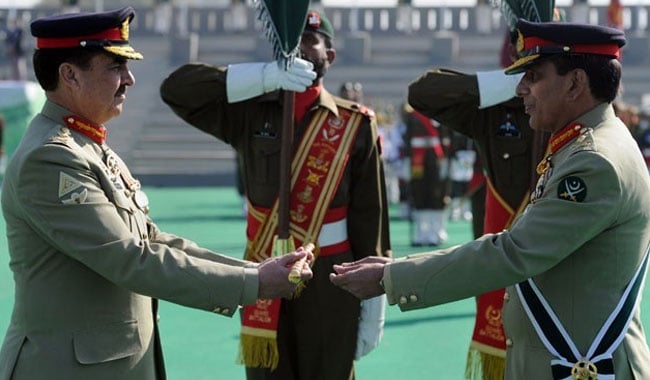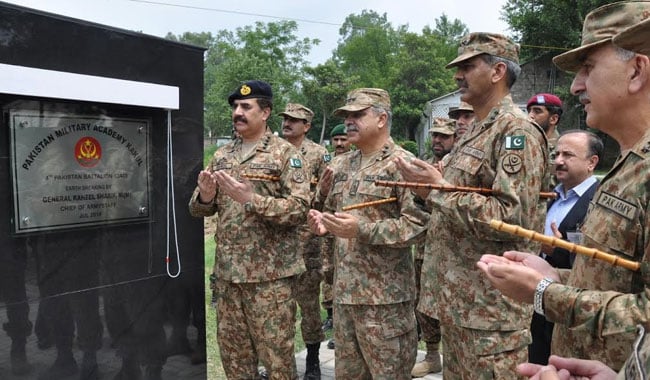ISLAMABAD: Whenever a new army chief takes over, the baton of command has to change hands from the outgoing chief into the hands of the incoming chief. But what's so special about the baton of command? Why is it so important and on what occasions is it an absolute necessary for an army general to carry it?
The handing over of the baton of command from the retiring army chief to the new one is considered as the most important part of the transfer of power ceremony. The importance of the baton of command or 'command cane' or the 'malacca cane' as it is also known, cannot be downplayed, especially within military circles.

For various occasions, the army chief and commanders have to carry a command cane with themselves necessarily. For instance, when saluting the national flag, receiving a guard of honour or witnessing a parade, army officials must carry the command cane with themselves. The command cane is kept away when the Chief of Army Staff meets with the President, Prime Minister or other senior political personalities. Whenever a meeting takes place at the office of the army chief, the command cane is kept aside.


Command canes are considered an integral part of senior ranking army officials' uniforms, such as Corps Commanders and GOCs. It is known as the malacca cane since it is made from the wood malacca found in the northern areas of Pakistan.
New Chief of Army Staff Gen. Qamar Javed Bajwa will be taking over as the country's new army chief today and the command cane of the army chief will pass on to new hands as well.
-
Security forces gun down 30 terrorists in multiple IBOs in KP: ISPR
-
MQM-P calls for new province in Sindh
-
US report validates Pakistan military edge over India: PM
-
Banned TTP poses serious threat to Pakistan security: UNSC panel
-
CM Afridi clarifies remarks on by-poll after ECP requests army deployment
-
Dubai sees 3.2m Pakistani passengers in 2025 as airport sets new milestone
-
Security forces kill 23 Indian proxy terrorists in KP's Kurram
-
Pakistan to construct island to boost oil exploration: report











